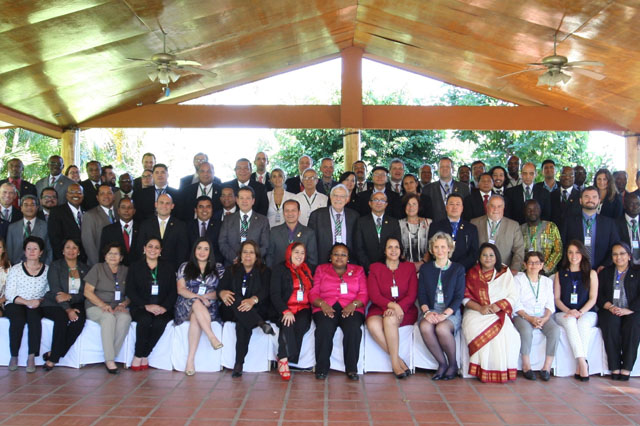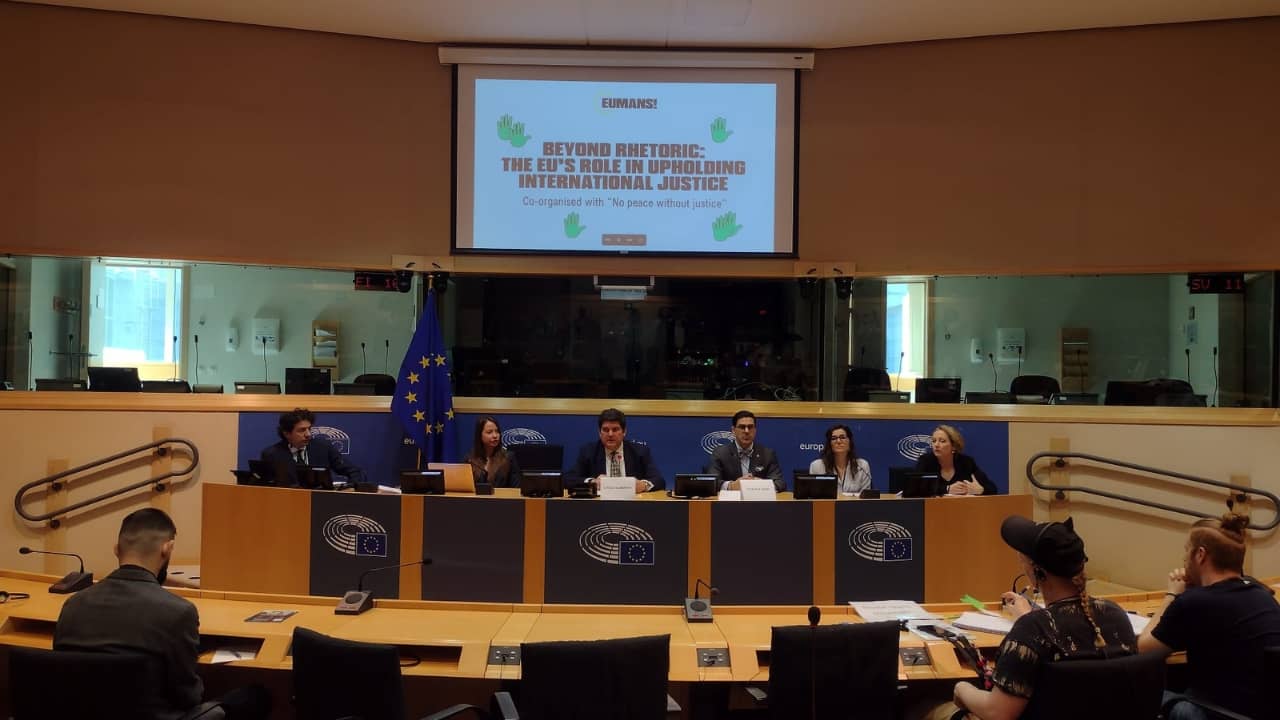
Parliamentarians for Global Action (PGA) seizes the occasion of International Justice Day commemorating the anniversary of the adoption of the Rome Statute of the International Criminal Court (ICC) on 17 July 1998, to highlight the fundamental role of the ICC in the pursuit of international justice and establishment of the Rule of Law.
In the last decades, the International Community has been confronted with unbearable mass-atrocities, regarding which the perpetrators of the most serious crimes that shock the consciousness of human-kind were left unpunished. Their impunity constituted a powerful incentive for the repetition of the cycles of violence and revenge, which brought about the reiteration of mass-atrocities in a number of conflict situations and by repressive regimes and armed groups. Aware of the need for a universal international justice system that could effectively complement and replace failed domestic mechanisms, the International Community actively worked towards the landmark adoption of the Rome Statute of the ICC, hence equipping itself with a long-term normative framework to fight impunity for the most serious crimes of international concern, namely genocide, crimes against humanity, war crimes and the crime of aggression.
The ICC is an institution mandated to affirm the principle of individual criminal responsibility and to fulfil the inalienable rights of victims, thus contributing to international peace and security by recognizing that individualization of guilt and truth-finding are central components of any credible reconciliation process. As the first international judicial body that is permanent, impartial and potentially universal, it is an essential tool to end the cycles of impunity and armed violence and to generate a deterrent effect on the commission of future crimes.
In order for the Court to achieve its full mandate, State Parties must provide full cooperation to the ICC, as the Court does not possess its own police, military and enforcement powers to facilitate investigations, locate witnesses, apprehend suspects, and freeze assets. Instead, these responsibilities lies with the States Parties, which, by ratifying the Rome Statute, took up the obligation to effectively support the ICC’s judicial and prosecutorial functions through concrete cooperation at all stages of the Court’s proceedings. States retain the monopoly of law-enforcement in their territories, and the Court must rely on their pro-active and reactive cooperation.
It is paramount that State Parties fulfil their obligation to cooperate with the Court in various areas, including by supporting the Court in carrying out its judicial mandate as well as entering into voluntary agreements and adopting the legislation implementing the Rome Statute, which facilitates the execution of the requests for cooperation.
Any non-execution of cooperation requests from the ICC has a negative impact on the ability of the Court to execute its mandate, in particular when it concerns the arrest and surrender of individuals subject to arrest warrants. The obstacles encountered in attempting to obtain cooperation, which forms an essential part of effective investigations, result in the delay and frustration of the course of justice for the victims, while breaking the Court’s promise to bring accountability to the perpetrators of the crimes under its jurisdiction.
As we celebrate this year’s International Justice Day, PGA calls on State Parties to fulfill their obligations under the Rome Statute, and in particular their duty to fully cooperate with the Court. In May 2016, Omar Al-Bashir, President of Sudan and subject of two arrest warrants issued by the ICC for genocide, crimes against humanity and war crimes, was invited and received by the governments of Djibouti and Uganda, which resulted -on 11 July 2016- in the Court’s issuance of two findings of non-compliance with its orders. Both findings have been referred to the Assembly of State Parties and the UN Security Council, due to their role in taking measures that would bring about compliance by States with their international obligations.
PGA calls upon all States Parties to the Rome Statute and the UN Charter to raise their level of attention to, and respect for, the principles of international criminal justice and the Rule of Law by taking effective measures to secure compliance with the no-impunity principle consecrated in Rome in 1998. By extending invitations to individuals who are subject to international arrest warrants, State are at odds with their obligations under the Assembly of State Parties Resolution and Article 41 of the UN Charter and UN Security Council Resolution 1593 and 1970, which have been reflected in the United Nations (UN) Guidelines on Non Essential Contacts.
PGA also calls upon all States – which are bound under customary international law to refrain from committing and to prevent genocide, crimes against humanity, war crimes and the crime of aggression – to ratify the Rome Statute of the ICC and thus allow the Court’s jurisdiction, based on the principles of territoriality and active personality, to become universal and ensure that no double-standard will be possible in the universal effort to fight impunity for the most serious crimes of international concern.
ASP Resolution, ICC-ASP/13/Res. 3 December 2014, available at www.icc-cpi.int/iccdocs/asp_docs/Resolutions/ASP13/ICC-ASP-13-Res3-ENG.pdf.




